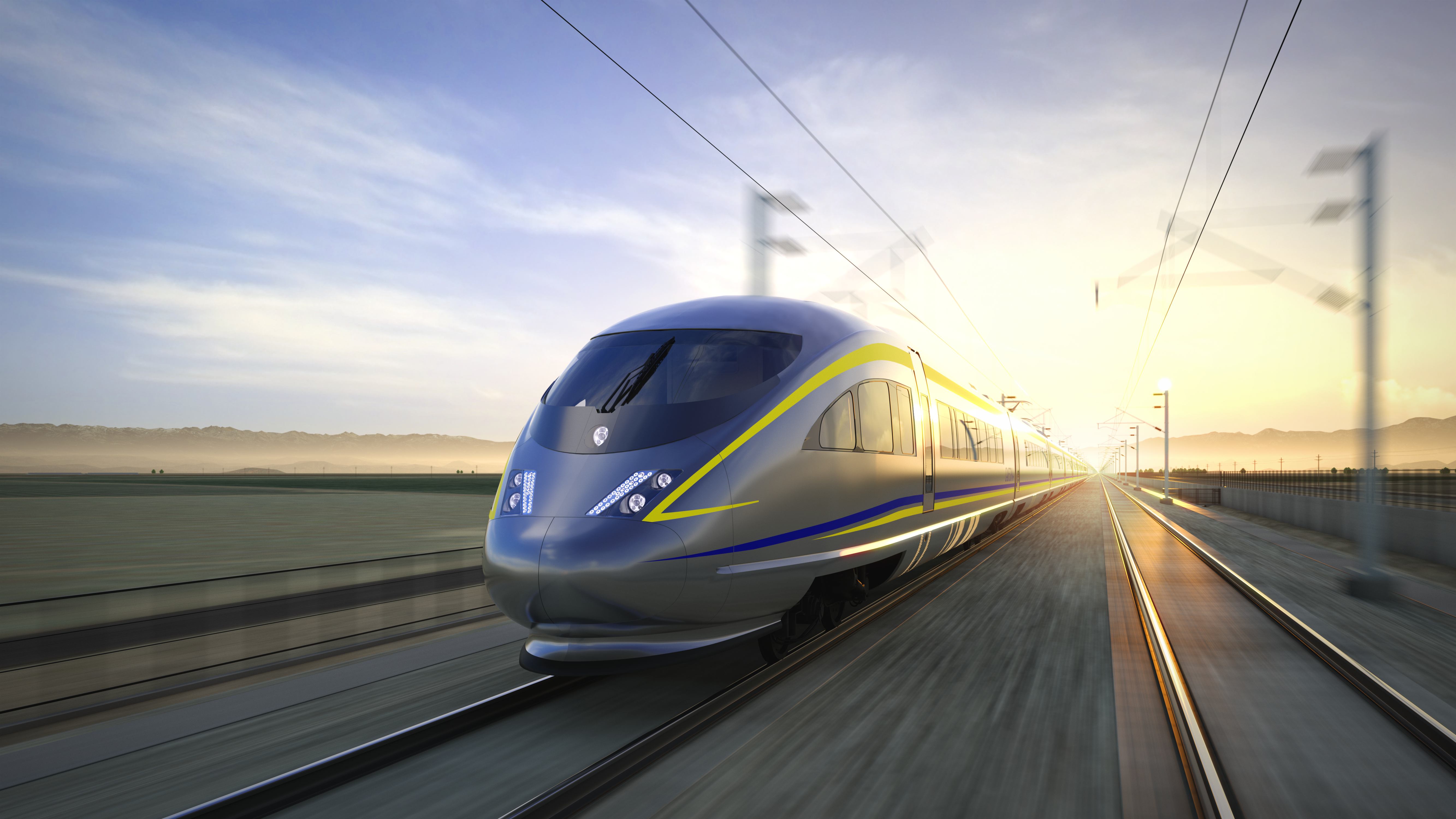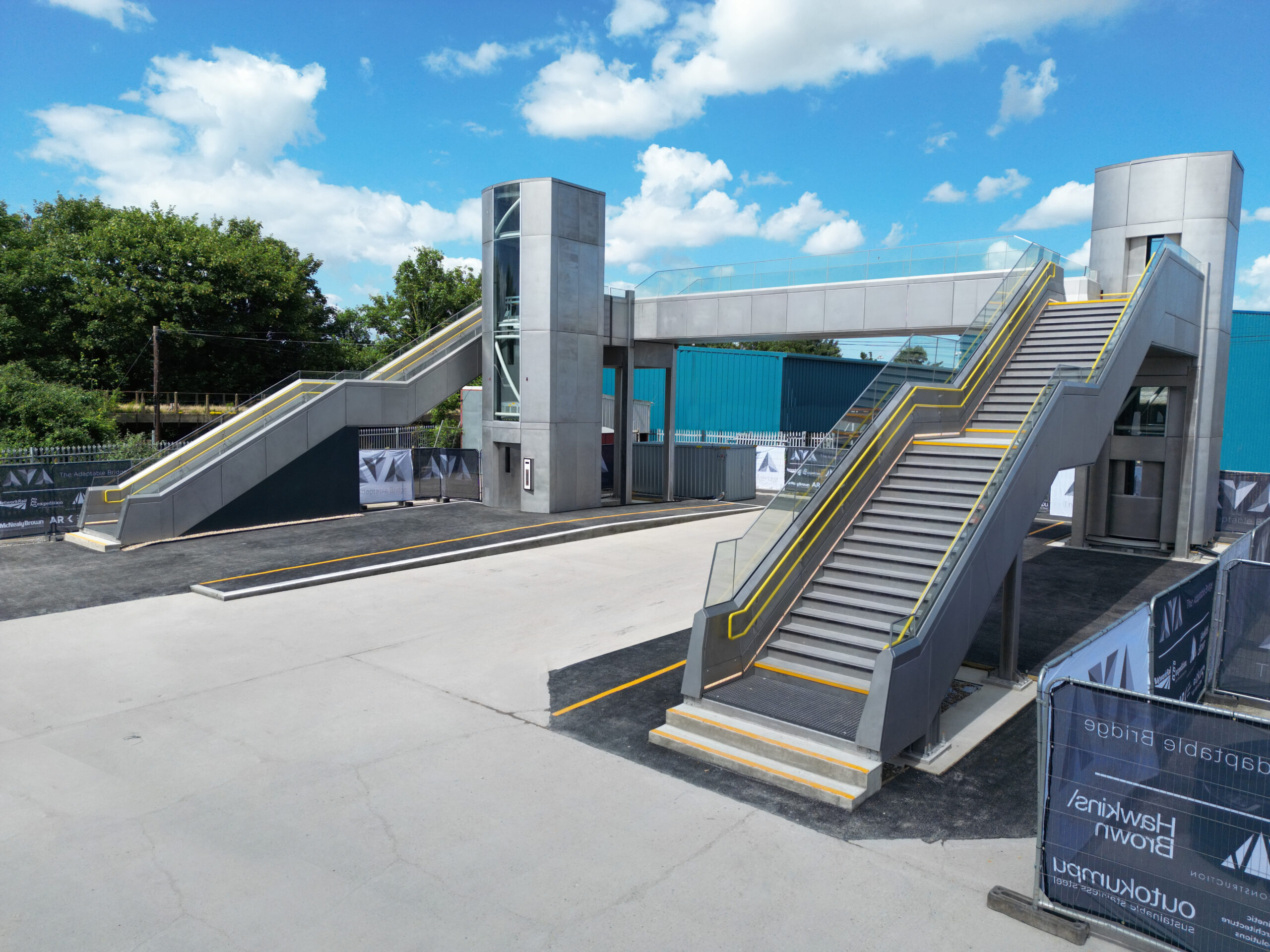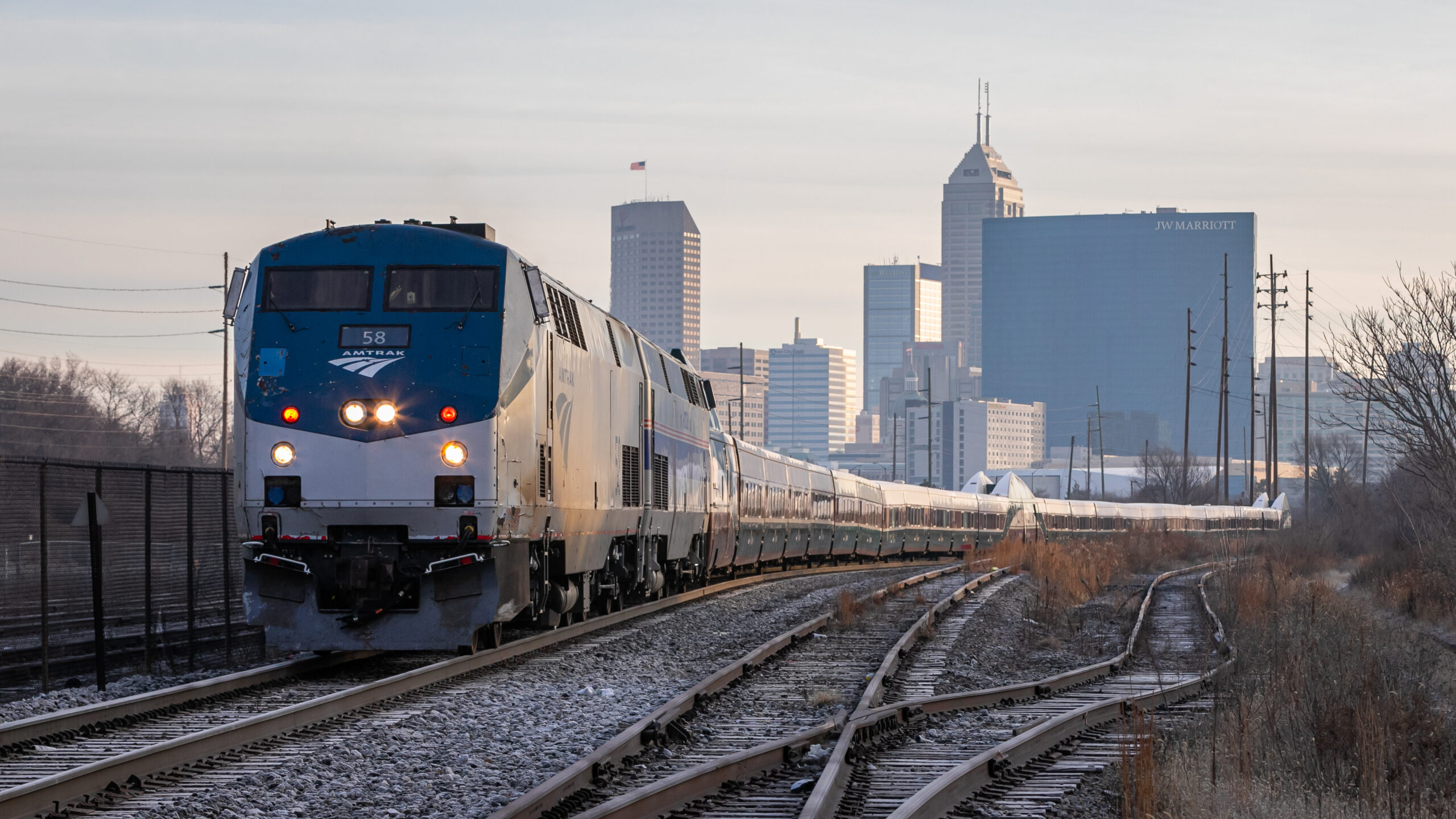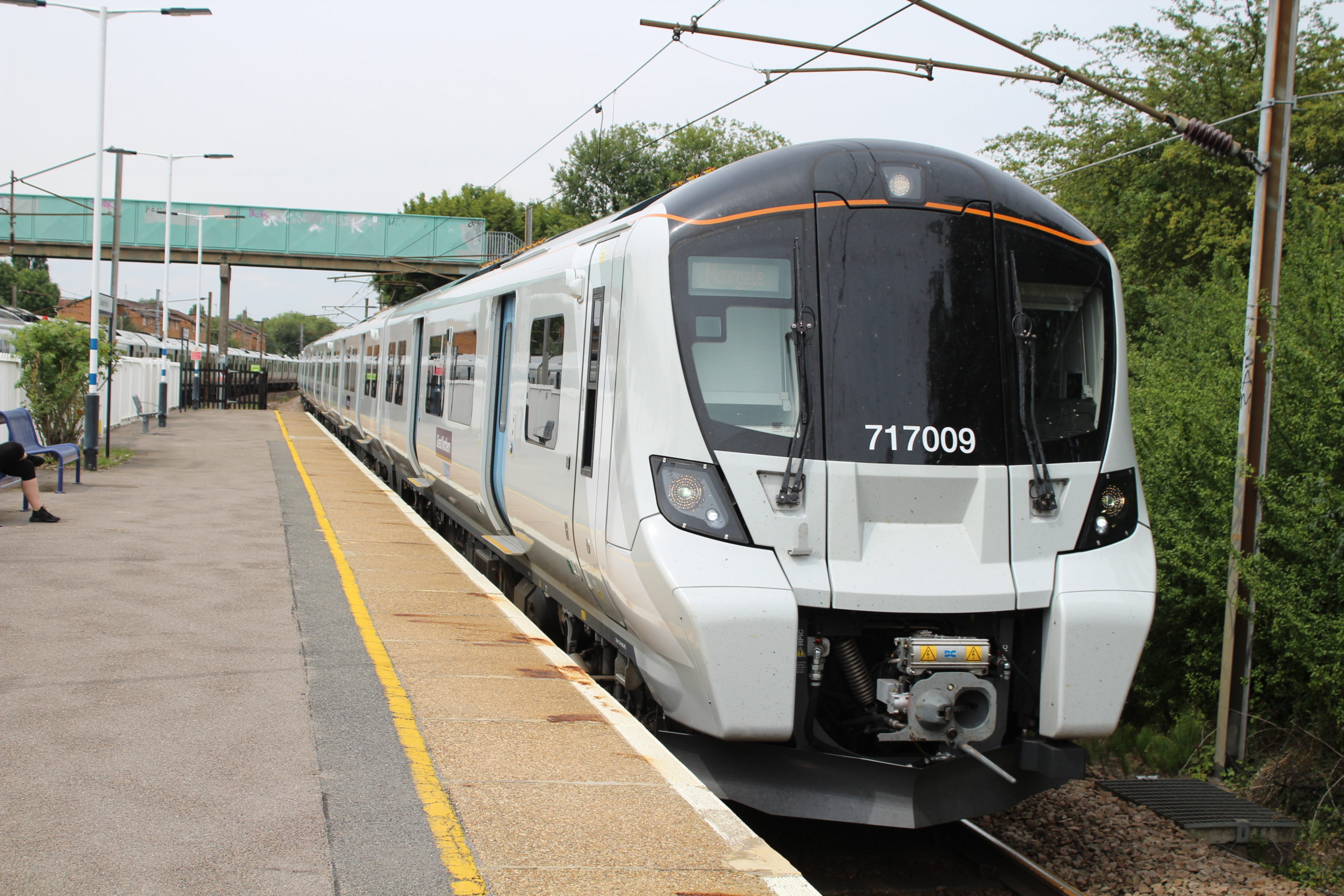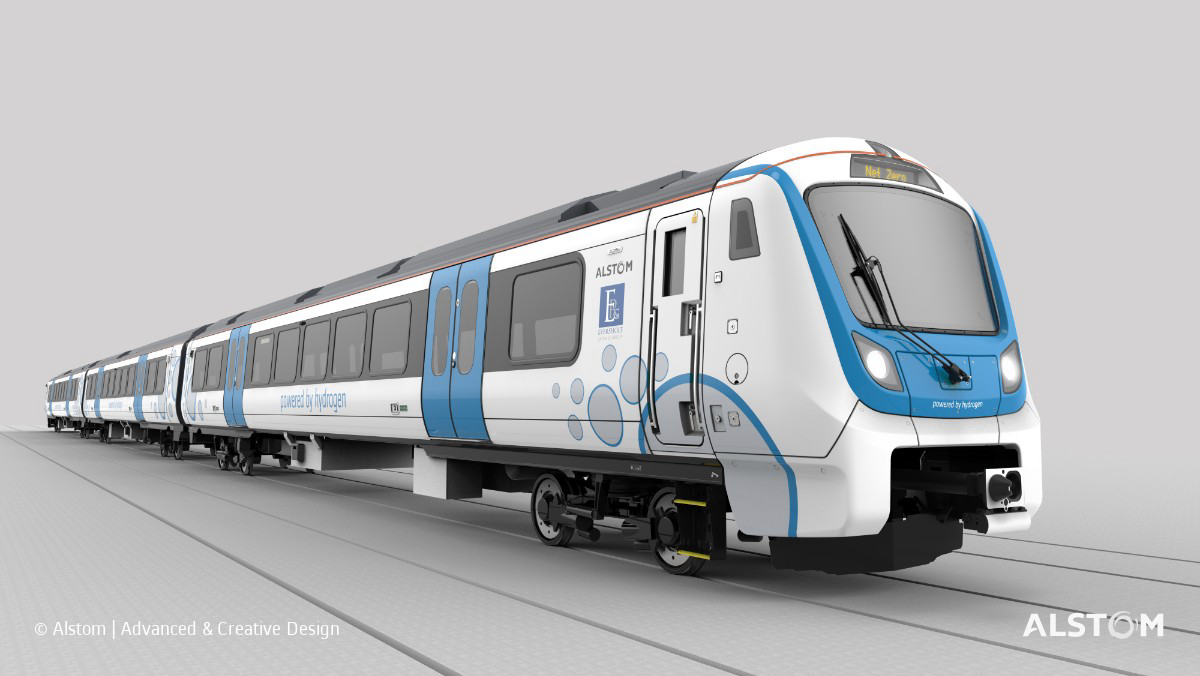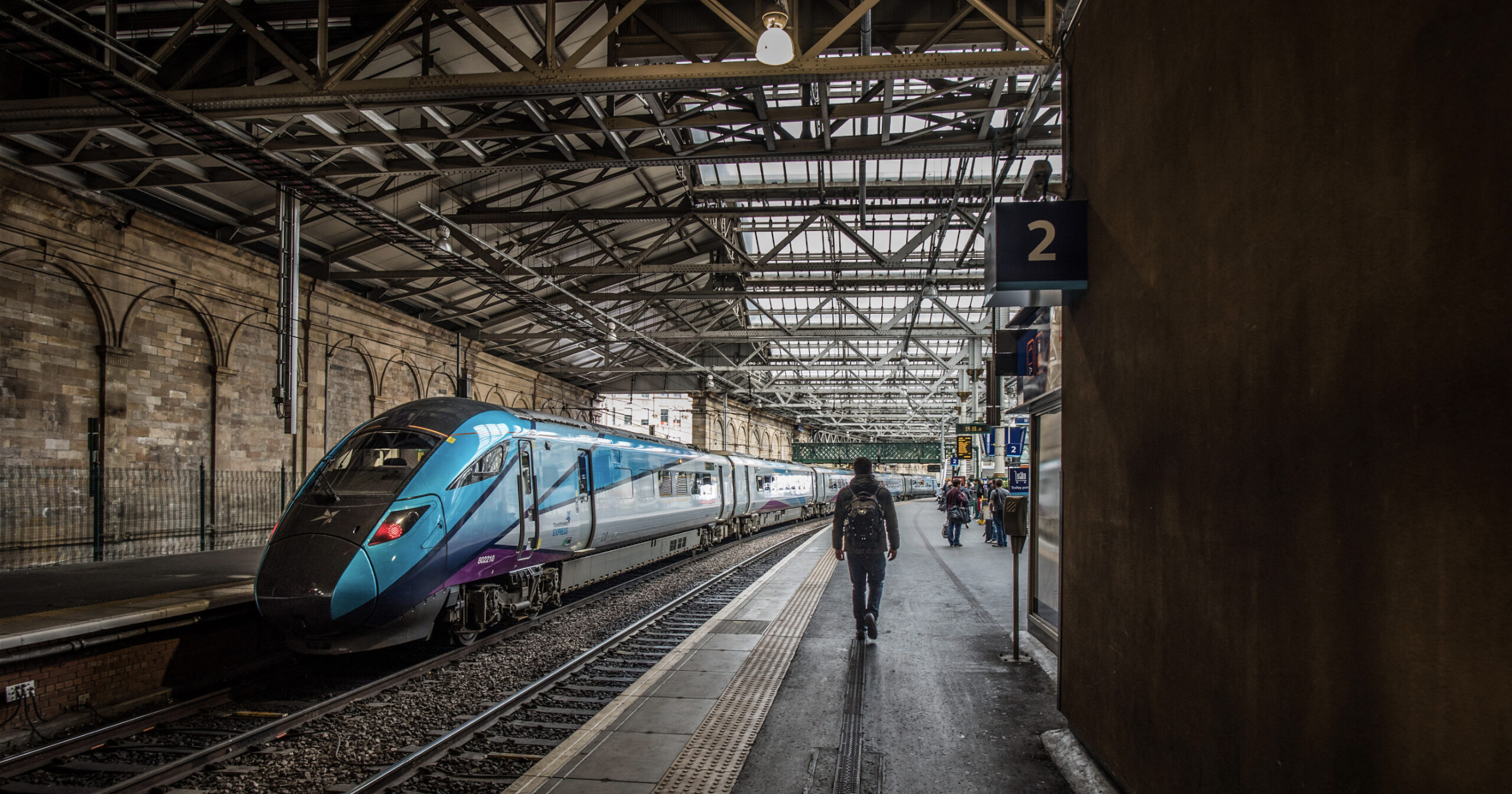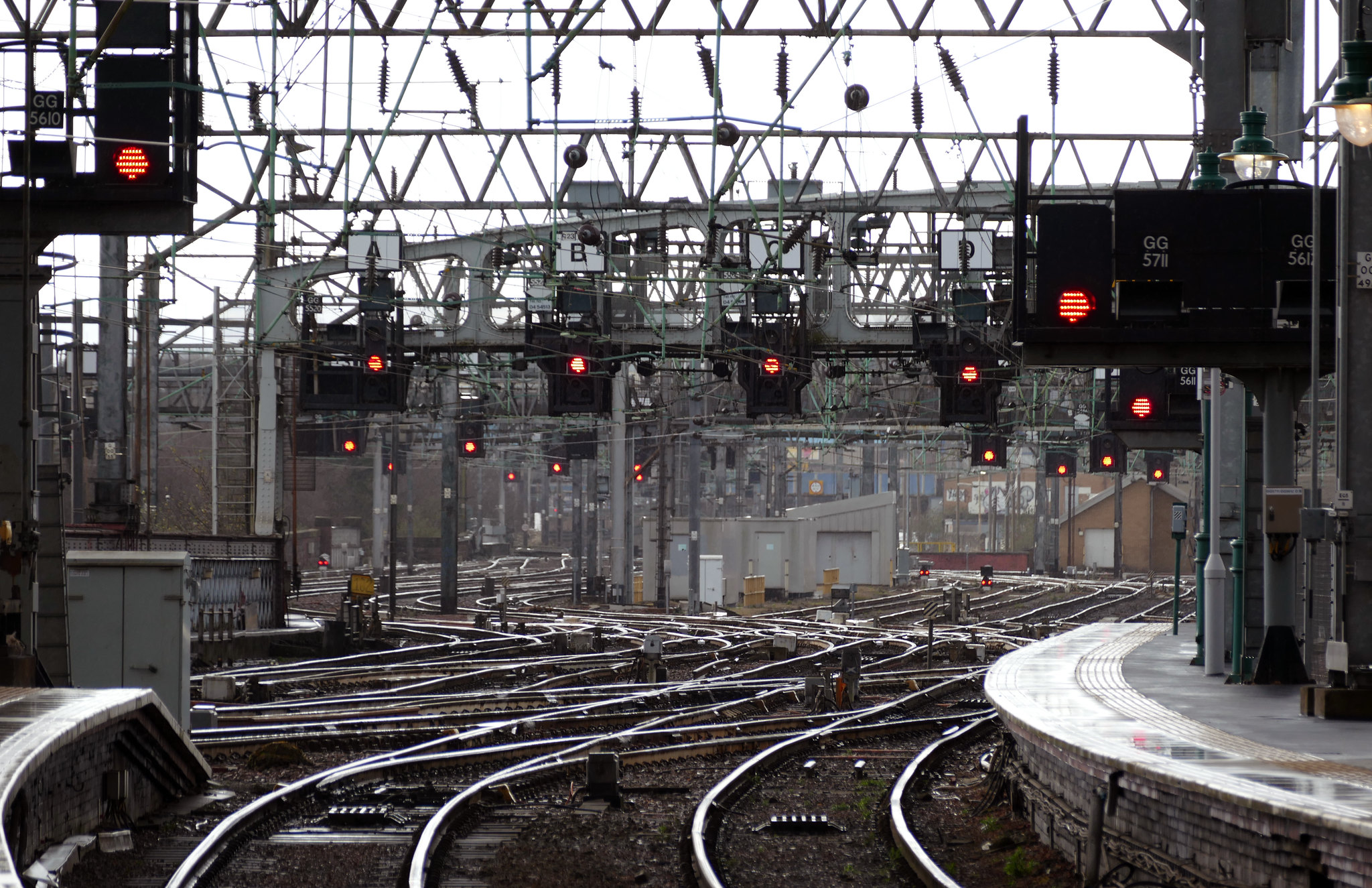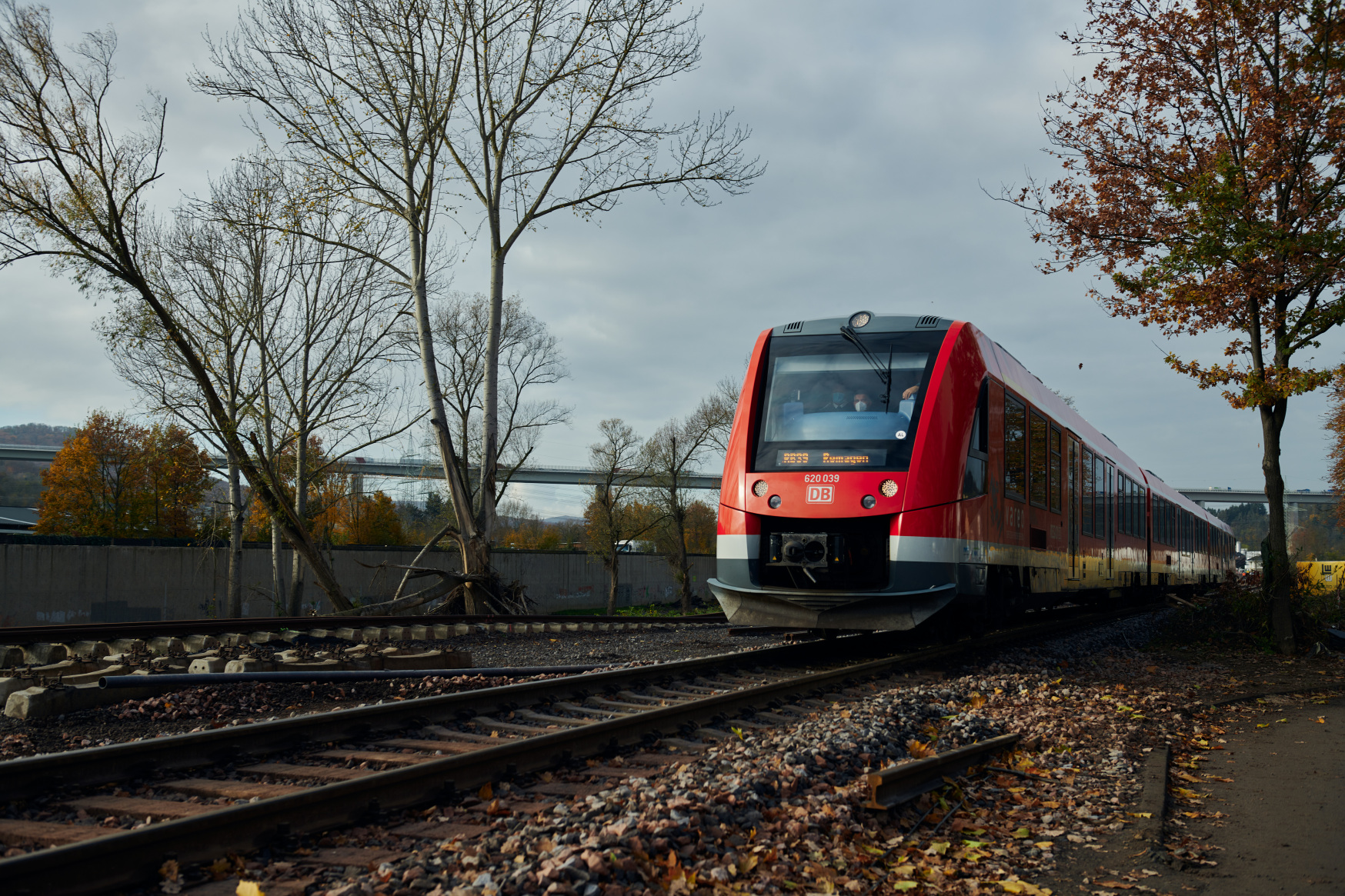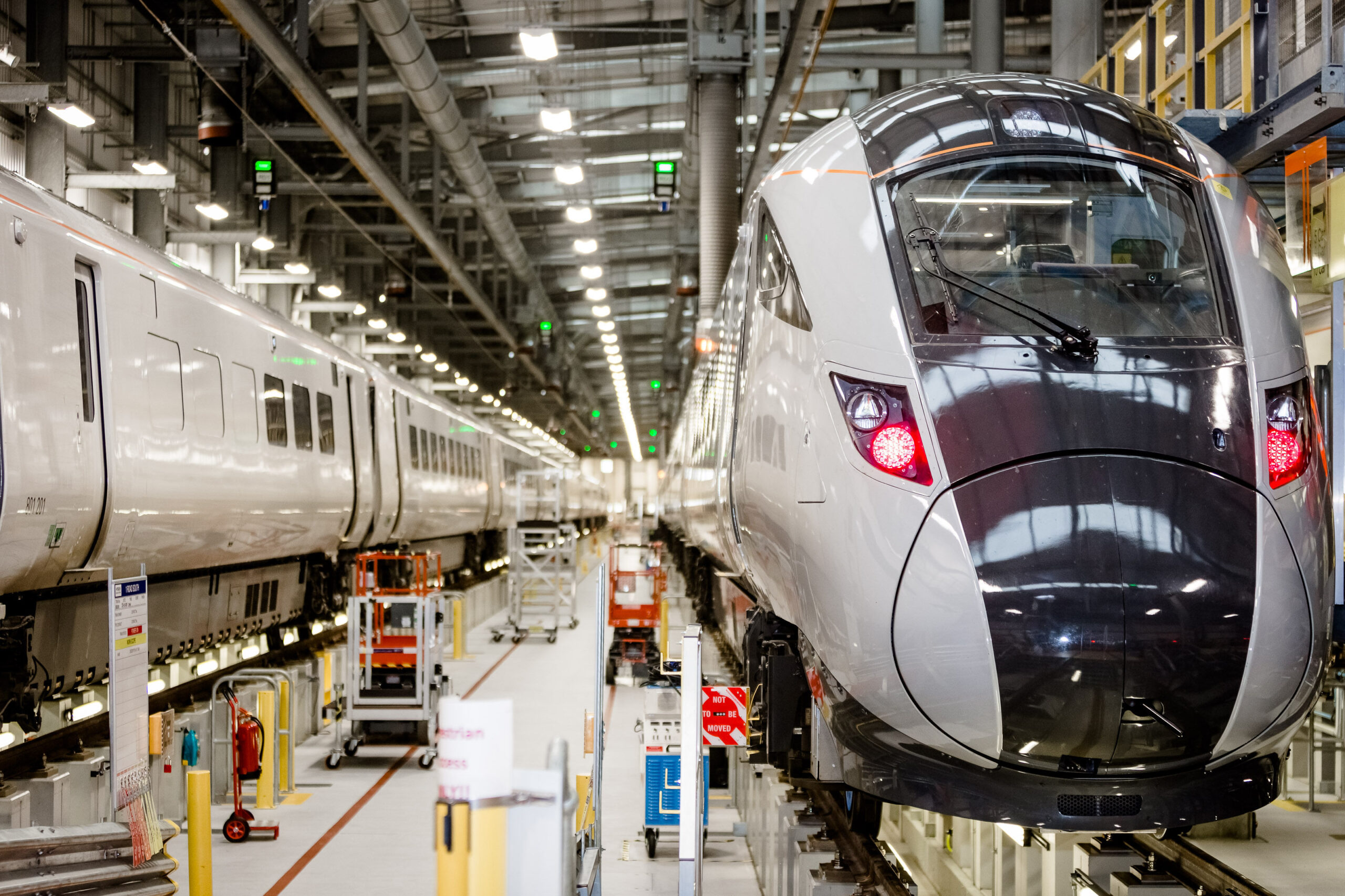The Great British Bake Off has “caramel week”; COP26 has “transport day”.
On Wednesday 10 November, with just three days left in the UN climate change conference, delegates gathered to talk about ways of taking the carbon out of our need to move about. As the evening approached, a press release popped into my inbox, in which the Railway Industry Association gleefully announced that Boris Johnson had been to look at a pair of net zero trains: a battery-powered one, from Vivarail, and a hydrogen one from HydroFLEX.
This, alas, has the distinct whiff of a PR stunt about it: the Prime Minister had also travelled to Glasgow by train, after being mocked for flying the previous week. And for fans of rail transport the conference has been a distinctly depressing affair. Net zero trains, whatever their power source of choice, were not on the agenda.
Transport day actually focused on topics including net-zero shipping and sustainable aviation fuel (neither of which, you’ll notice, involve trains). The biggest transport topic, though – indeed, one of the biggest of the entire summit – was the coming switch to electric cars. The big transport pledge: 24 countries, and assorted car manufacturers, will end the sale of new fossil fuel-powered vehicles in “leading markets” by 2035, and globally by 2040. (The UK, ahead of the curve for once, has already pledged to do so by 2030.)
Road transport is responsible for around 15% of all global emissions, but still, it’s hard to get too excited about this announcement. For one thing, it says nothing about where we’re getting the power to recharge all those electric vehicles: that could still, plausibly, come via fossil fuels. For another, twenty years is a long time (just think about how old you’ll be in 2040), and even after that there’ll presumably still be plenty of existing vehicles spewing emissions into the atmosphere for some years to come. Then there’s the truly damning fact that three of the largest car markets (the US, China and Germany) and major car companies including Toyota and Volkswagen declined to sign up to even this milksop pledge.
The biggest issue, though, is that this focus on simply making our existing transport system slightly cleaner left little room for more fundamental change. Cars, after all, don’t just generate carbon emissions. They create congestion, kick up particulates, and worst of all, take up vast amounts of space, warping our built environment around themselves. A world dominated by electric vehicles would be better than one dominated by petrol ones, but a damn sight worse than one which encouraged walking, cycling and public transport.
So while there were plenty of sustainable transport advocates present in Glasgow this last fortnight, they struggled to get their voice heard. “Persuading more people to swap at least some journeys from cars to public transport will have immediate benefits for the climate,” noted Paul Tuohy, Chief Executive of Campaign for Better Transport. Yet the conference was focused on working towards less radical change. In twenty years’ time.
Rail was hardly the only casualty of this lack of radicalism at COP26: Chris Boardman, the Greater Manchester transport commissioner, described it as “crazy” that cycling, arguably the greenest form of urban transport of all, wasn’t even on the agenda. But it is striking how little discussion there was of a form of transport that has spent the last 200 years showing it can do the business both within cities and between them, and cut humanity’s carbon footprint in the process.
Such lack of interest in the role better rail could play in decarbonising our economy feels particularly urgent in the UK just now. Two major investment projects, the High Speed 2 north-south route, and the Northern Powerhouse Rail (NPR) east-west one, would between them offer both vast increases in capacity and cuts in journey times between most of England’s major population centres. The Northern Agenda, a newsletter focusing on the north of England, recently published a pair of maps showing that, with the two schemes complete, vast areas of the country currently best reached from Leeds by car would suddenly be quicker by rail. If you’re really looking to create a lower carbon transport system, this is where you’d start.
As things stand, though, a certain type of green activist is enthusiastically opposed to HS2, on the grounds it’ll affect some ancient woodland, while strangely having no such issue with the dozens of smaller, less visible road schemes that not adding rail capacity will require. Worse, question marks hang over both projects in the Treasury, with Rishi Sunak said to be itching to kick the Birmingham-East Midlands-Yorkshire arm of HS2 into the long grass, and to do the absolute bare minimum on NPR. At the same time, the chancellor cut passenger duty on short-haul domestic flights, even as the world gathered in Glasgow to talk climate change and electric cars.
Boris Johnson may pose cheerily with the occasional low-carbon train. But until he’s ready to force his chancellor to open his wallet to pay for a few, his commitment to clean transport will look about as convincing as all his other promises.
About Jonn Elledge
Jonn Elledge is a journalist and editor who specialises in transport and local government. Former assistant editor of the New Statesman.

















